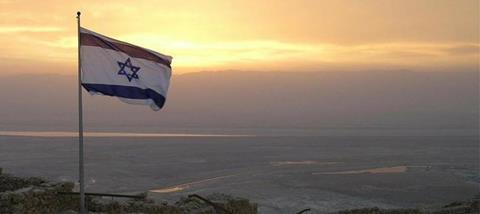
Israel inhabits a sacred place, both geographically and in the hearts of billions, including many Christians who want to see Israel’s people secure and safe. This week saw the surprise announcement that the United Arab Emirates is to become the first Arab Gulf State to establish diplomatic relations with Israel in what Prime Minister Benjamin Netanyahu dubbed an ‘historic’ event. My own reaction was to greet the news with cautious optimism, as well as a sense of relief that it has spared Israel from a making what would have been, in my opinion, a damaging mistake.
The detail behind this new olive branch is that Israel receives recognition from the UAE in exchange for suspending plans to ‘exercise sovereignty’ over parts of the disputed West Bank territory. A gap still remains between the parties, since Netanyahu characterised the deal only as a delay to his plans for the West Bank, while the UAE’s Minister of State for Foreign Affairs, Anwar Gargash, said it was “a stoppage of the annexation, not a suspension.” For the short term though, at least, it buys some time and offers the chance for some good things to emerge. It really looks like quite a momentous step.
I want to preface what follows by disclosing that I am a Christian who believes the modern emergence of the State of Israel correlates with promises found throughout the Old Testament. One would struggle to find a biblical theme much more consistent and emphatic than God’s recurring promises of a return for the Jewish people to the Promised Land. To quote just one example: “Even if you have been banished to the most distant land under the heavens, from there the Lord your God will gather you and bring you back.” (Deuteronomy 30:4)
I consider Israel a sign of God’s faithfulness, and the Jewish people as his covenant people with a mission to bear witness to God in a manner broadly consistent with what Christians call ‘furthering God’s Kingdom’. Christians can stand with our Jewish brothers and sisters and celebrate the realisation of their dream to have a place on earth to call home.
However none of this prevented me from feeling deeply concerned about the Israeli Prime Minister Benjamin Netanyahu’s plans for the West Bank as outlined in January. For me, their suspension under the deal is equally beneficial to Israel as the normalisation of relations with the UAE. The prospect of a right-leaning US-Israeli cohort moving to unilaterally absorb West Bank territory, in what now looks like an abandoned attempt to serve of Donald Trump’s own re-election ambitions, was frankly reckless. This is because 2.9 million Palestinians (the majority) live in the West Bank, most from families who have been there for generations before the emergence of the modern Palestinian and Israeli national identities.
The Palestinians are not ‘aliens’, but neighbours. They are people, not inconvenient obstacles who can be set aside.
Christian supporters of Israel often point out 1) The ‘West Bank’ was part of the area mandated for the Jewish State right after the First World War and never belonged to a national group called ‘the Palestinians’ which Israel ‘occupied’ and therefore should simply ‘give back’. 2) The West Bank was occupied by Jordan at the end of Israel’s war of independence in 1949 without and then recaptured in 1967. 3) Jewish communities have lived in that region since time immemorial. I agree with all of these statements. But none of them diminish the fact that Palestinian people undeniably live there today.
The Palestinians are not ‘aliens’, but neighbours – even if a few may be admittedly very hostile neighbours. They are people, not inconvenient obstacles who can be set aside. Like it or not, Israel simply ‘exercising sovereignty’ over more of the West Bank, even if successfully arguing that it can do so ‘legally’, will only sow and later reap more mistrust, more conflict and more violence. There is only one peaceful solution; the one seemingly achieved with the UAE: you have to somehow turn one’s enemy into a friend.
The hypocrisy in observers, even me, criticising Israel grappling with this problem is that it’s far easier to find fault than to offer real solutions. Searching for that elusive peaceful end to the Israel-Palestine conflict feels like asking for directions to your destination, only to hear back, “You wouldn’t start from here, mate!” Of course what this really means is not that the journey is impossible. There is just no direct route.
Adam Raffell is from York and worked for ten years for Christian organisations helping Jewish people. He studied theology at St. Andrews and a Masters in Jewish-Christian Relations with the Woolf Institute in Cambridge (M.St). Today he works for York Foodbank.
Premier Christianity is committed to publishing a variety of opinion pieces from across the UK Church. The views expressed here do not necessarily represent those of the publisher





























